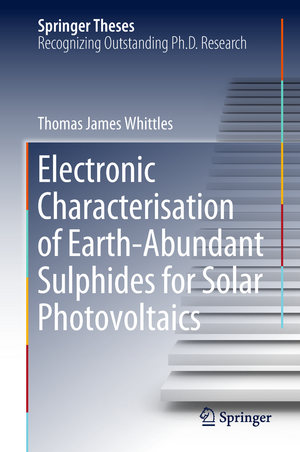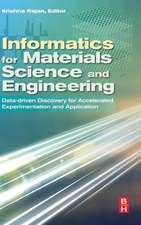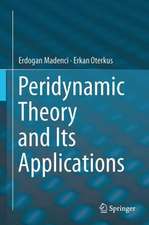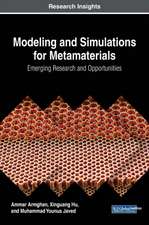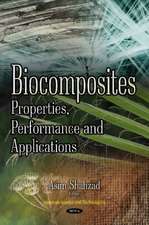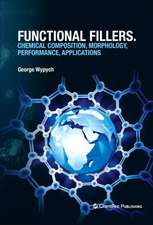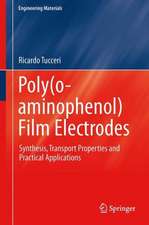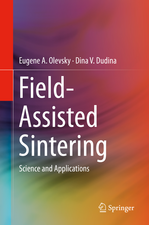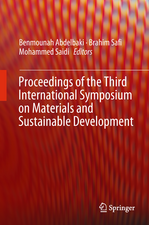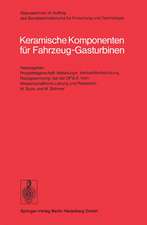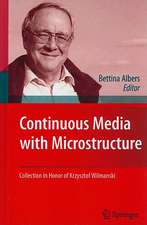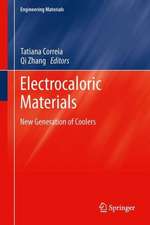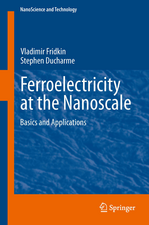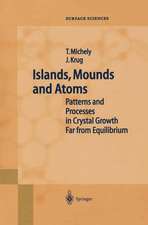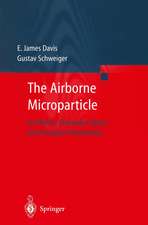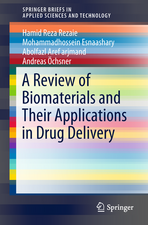Electronic Characterisation of Earth‐Abundant Sulphides for Solar Photovoltaics: Springer Theses
Autor Thomas James Whittlesen Limba Engleză Hardback – 11 aug 2018
| Toate formatele și edițiile | Preț | Express |
|---|---|---|
| Paperback (1) | 645.28 lei 6-8 săpt. | |
| Springer International Publishing – 14 feb 2019 | 645.28 lei 6-8 săpt. | |
| Hardback (1) | 651.67 lei 6-8 săpt. | |
| Springer International Publishing – 11 aug 2018 | 651.67 lei 6-8 săpt. |
Din seria Springer Theses
- 18%
 Preț: 997.88 lei
Preț: 997.88 lei -
 Preț: 389.88 lei
Preț: 389.88 lei - 15%
 Preț: 646.94 lei
Preț: 646.94 lei - 18%
 Preț: 943.43 lei
Preț: 943.43 lei -
 Preț: 399.29 lei
Preț: 399.29 lei - 18%
 Preț: 944.99 lei
Preț: 944.99 lei - 15%
 Preț: 636.80 lei
Preț: 636.80 lei - 18%
 Preț: 941.05 lei
Preț: 941.05 lei - 15%
 Preț: 643.16 lei
Preț: 643.16 lei - 15%
 Preț: 642.68 lei
Preț: 642.68 lei - 18%
 Preț: 1103.62 lei
Preț: 1103.62 lei - 20%
 Preț: 558.83 lei
Preț: 558.83 lei - 18%
 Preț: 1112.30 lei
Preț: 1112.30 lei - 18%
 Preț: 944.19 lei
Preț: 944.19 lei - 18%
 Preț: 1109.92 lei
Preț: 1109.92 lei - 18%
 Preț: 1217.27 lei
Preț: 1217.27 lei - 15%
 Preț: 640.06 lei
Preț: 640.06 lei - 15%
 Preț: 636.45 lei
Preț: 636.45 lei - 15%
 Preț: 640.06 lei
Preț: 640.06 lei - 15%
 Preț: 640.88 lei
Preț: 640.88 lei -
 Preț: 389.70 lei
Preț: 389.70 lei - 20%
 Preț: 563.91 lei
Preț: 563.91 lei -
 Preț: 393.35 lei
Preț: 393.35 lei - 15%
 Preț: 637.93 lei
Preț: 637.93 lei - 15%
 Preț: 641.85 lei
Preț: 641.85 lei - 18%
 Preț: 1225.94 lei
Preț: 1225.94 lei - 20%
 Preț: 551.36 lei
Preț: 551.36 lei - 18%
 Preț: 1229.10 lei
Preț: 1229.10 lei - 15%
 Preț: 639.25 lei
Preț: 639.25 lei - 18%
 Preț: 999.45 lei
Preț: 999.45 lei - 15%
 Preț: 640.06 lei
Preț: 640.06 lei - 18%
 Preț: 1220.45 lei
Preț: 1220.45 lei - 18%
 Preț: 1116.26 lei
Preț: 1116.26 lei - 18%
 Preț: 1110.72 lei
Preț: 1110.72 lei - 18%
 Preț: 1000.87 lei
Preț: 1000.87 lei - 18%
 Preț: 891.17 lei
Preț: 891.17 lei - 15%
 Preț: 640.06 lei
Preț: 640.06 lei - 5%
 Preț: 1154.07 lei
Preț: 1154.07 lei - 15%
 Preț: 635.96 lei
Preț: 635.96 lei - 15%
 Preț: 640.88 lei
Preț: 640.88 lei -
 Preț: 387.20 lei
Preț: 387.20 lei - 18%
 Preț: 1109.92 lei
Preț: 1109.92 lei -
 Preț: 385.25 lei
Preț: 385.25 lei -
 Preț: 385.25 lei
Preț: 385.25 lei - 18%
 Preț: 1112.30 lei
Preț: 1112.30 lei - 18%
 Preț: 999.45 lei
Preț: 999.45 lei -
 Preț: 386.99 lei
Preț: 386.99 lei - 15%
 Preț: 637.13 lei
Preț: 637.13 lei - 20%
 Preț: 554.21 lei
Preț: 554.21 lei - 20%
 Preț: 555.59 lei
Preț: 555.59 lei
Preț: 651.67 lei
Preț vechi: 766.67 lei
-15% Nou
Puncte Express: 978
Preț estimativ în valută:
124.69€ • 130.20$ • 102.97£
124.69€ • 130.20$ • 102.97£
Carte tipărită la comandă
Livrare economică 15-29 aprilie
Preluare comenzi: 021 569.72.76
Specificații
ISBN-13: 9783319916644
ISBN-10: 3319916645
Pagini: 355
Ilustrații: XXX, 362 p. 225 illus., 159 illus. in color.
Dimensiuni: 155 x 235 mm
Greutate: 0.73 kg
Ediția:1st ed. 2018
Editura: Springer International Publishing
Colecția Springer
Seria Springer Theses
Locul publicării:Cham, Switzerland
ISBN-10: 3319916645
Pagini: 355
Ilustrații: XXX, 362 p. 225 illus., 159 illus. in color.
Dimensiuni: 155 x 235 mm
Greutate: 0.73 kg
Ediția:1st ed. 2018
Editura: Springer International Publishing
Colecția Springer
Seria Springer Theses
Locul publicării:Cham, Switzerland
Cuprins
Introduction.- Experimental Methods.- The Electronic Structure of CuSbS₂ for Use as a PV Absorber.- The Electronic Structure of Cu₃BiS₃ for Use as a PV Absorber.- The Electronic Structure of Cu₃BiS₃ for Use as a PV Absorber.- The Use of Photoemission Spectroscopies for the Characterisation and Identification of Cu₂ZnSnS₄ and its Secondary Phases.- Conclusions and Recommendations for the Future.
Notă biografică
Having graduated with a Master's degree in physics from the University of Durham, UK, Thomas Whittles then completed his PhD at the University of Liverpool, UK, producing the work presented in this book. He now lives in Germany, and is about to begin a postdoctoral placement at the Max Planck Institute for Solid State Research in Stuttgart.
Textul de pe ultima copertă
This book examines the electronic structure of earth-abundant and environmentally friendly materials for use as absorber layers within photovoltaic cells. The corroboration between high-quality photoemission measurements and density of states calculations yields valuable insights into why these materials have demonstrated poor device efficiencies in the vast literature cited. The book shows how the materials’ underlying electronic structures affect their properties, and how the band positions make them unsuitable for use with established solar cell technologies. After explaining these poor efficiencies, the book offers alternative window layer materials to improve the use of these absorbers. The power of photoemission and interpretation of the data in terms of factors generally overlooked in the literature, such as the materials’ oxidation and phase impurity, is demonstrated. Representing a unique reference guide, the book will be of considerable interest and value to members of the photoemission community engaged in solar cell research, and to a wider materials science audience as well
Caracteristici
Nominated as an outstanding Ph.D. thesis by the University of Liverpool, Liverpool, UK Represents an important contribution to our understanding of selected new solar cell materials and shows an impressive command of several complex characterization techniques Color figures help to elucidate the correlation between the measurement and computation of energy levels, and its implications for solar cell design
